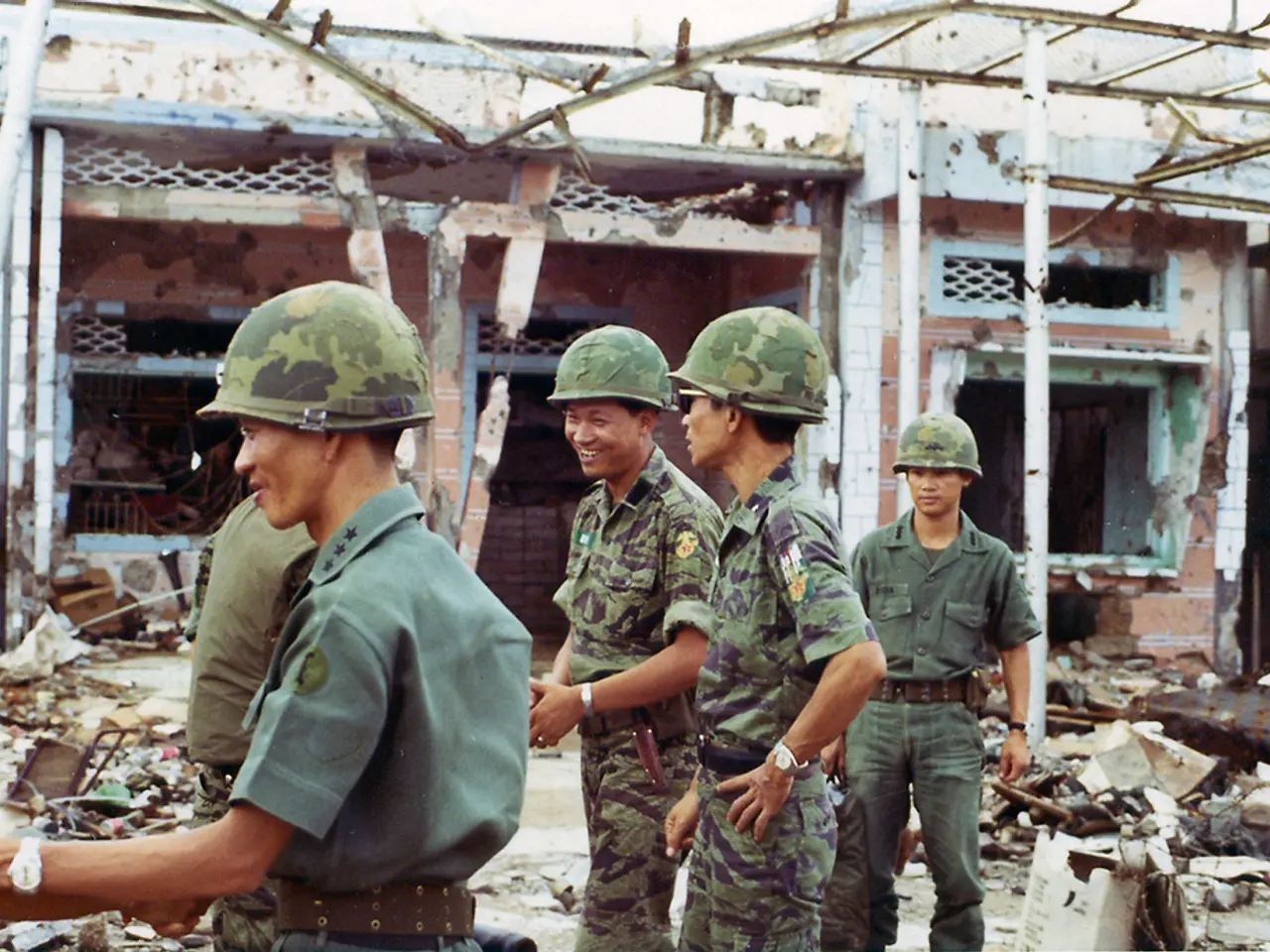Israel intends to capture Gaza City: What are the potential ramifications?
Israel Expands Military Operation in Gaza, Raising Concerns and International Criticism
Israel's decision to expand its military operation in the Gaza Strip has sparked concerns about the worsening humanitarian crisis, the safety of hostages, and the escalation of regional instability.
The expansion of the operation involves a ground invasion of Gaza City, a densely populated area, which is expected to increase civilian casualties and further displace Palestinians. The United Nations reports that 1.9 million Gazans are already displaced, with no functioning hospitals and acute food shortages. The blockade and past attacks have crippled humanitarian aid, restricting even essential supplies like water purification tablets, further deepening the crisis.
Regarding hostages, while Israel’s past rescue operations have succeeded, the expanded operation raises fears among Israeli families that prospects for a ceasefire and hostage exchange are diminishing. Intensified conflict may also complicate efforts to safely recover hostages held by Hamas amid ongoing guerrilla warfare in urban areas.
On the international front, multiple governments and international bodies have condemned Israel’s military expansion as exacerbating regional instability and violating international humanitarian law. The Turkish Ministry of Foreign Affairs has condemned it as part of a genocidal policy deepening the humanitarian crisis, calling for a ceasefire and two-state negotiations. Other international actors, including Canada and European governments, have joined the outcry, urging restraint and adherence to international law.
Prime Minister Netanyahu has stated that the objectives of the operation include disarming Hamas, returning all hostages, demilitarizing the Gaza Strip, gaining military control of the coastal region, and establishing a civilian administration not subject to Hamas or the Palestinian Authority. However, the expansion risks worsening Israel’s diplomatic standing and increasing tensions in an already volatile region.
The city of Gaza has already been the target of several Israeli attacks since the start of the conflict around 22 months ago. A large-scale ground offensive in urban areas poses increased risks for Israeli soldiers and could further undermine support for the war among the Israeli public.
As the conflict continues, aid organizations warn of disease outbreaks in the overcrowded refugee camps in the center of the Gaza Strip. Qatar, Egypt, and Turkey are reportedly putting pressure on Hamas to quickly return to the negotiating table for a ceasefire.
The German government, in response to increasing criticism of Israel’s military action, has taken concrete measures against military exports that could be used in the Gaza war. British Prime Minister Keir Starmer has also called on Israel to reconsider its decision to escalate, stating that it will not contribute to ending the conflict or releasing hostages.
In the midst of this, Prime Minister Netanyahu faces a political dilemma over what to do with the Gaza Strip, with his far-right coalition partners demanding the occupation of the entire territory and the expulsion of Palestinians, while moderate members of the government and opposition parties reject this vehemently.
The military currently controls around 75 percent of the Gaza Strip’s territory, and the city of Gaza is one of the parts not yet under Israeli control. The conquest of further areas has sparked fears among the Palestinian population of a new wave of flight and expulsion, similar to those during the war accompanying Israel's founding in 1948 and during the Six-Day War in 1967.
In conclusion, the expanded Israeli military operation in Gaza has grave implications for civilians, hostages, and international relations by intensifying human suffering, complicating hostage situations, and fueling global diplomatic backlash. It is crucial for all parties to prioritize peace, humanitarian aid, and the safety of all involved to find a resolution to this ongoing conflict.
References: 1. Turkish Ministry of Foreign Affairs statement 2. UN OCHA Gaza report 3. Canada's statement on Gaza 4. EU statement on Gaza 5. European Parliament resolution on Gaza
The expansion of Israel's military operation in Gaza, a war-and-conflicts hotspot, has not only raised concerns about deteriorating humanitarian conditions but also sparked international politics, as various governments and international bodies criticize the move as a violation of international law and a threat to regional stability. General news outlets are closely monitoring the situation, focusing on the safety of hostages involved in the conflict and the potential impacts on the already precarious general news environment in the Middle East.








